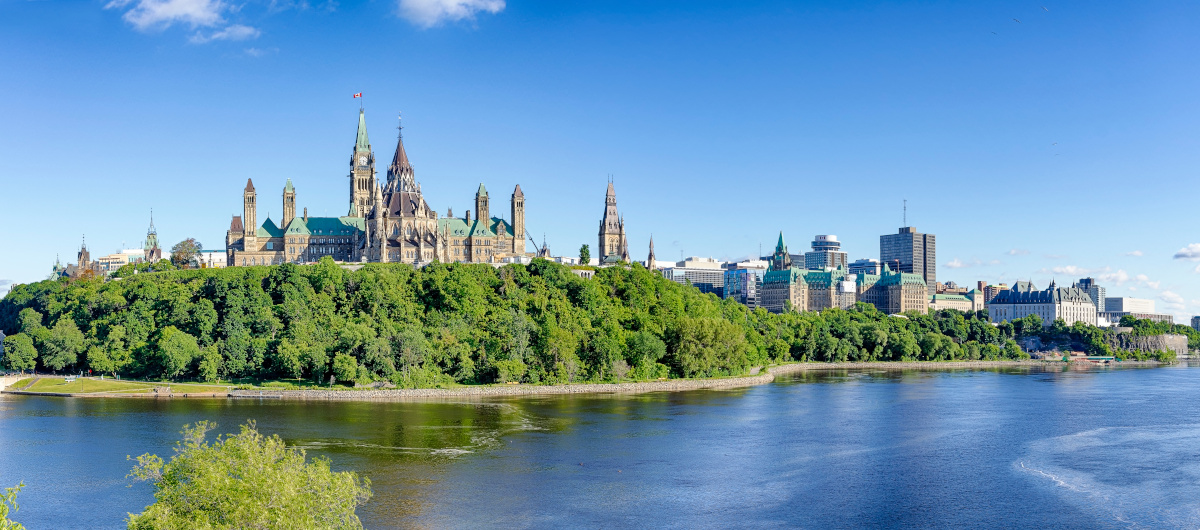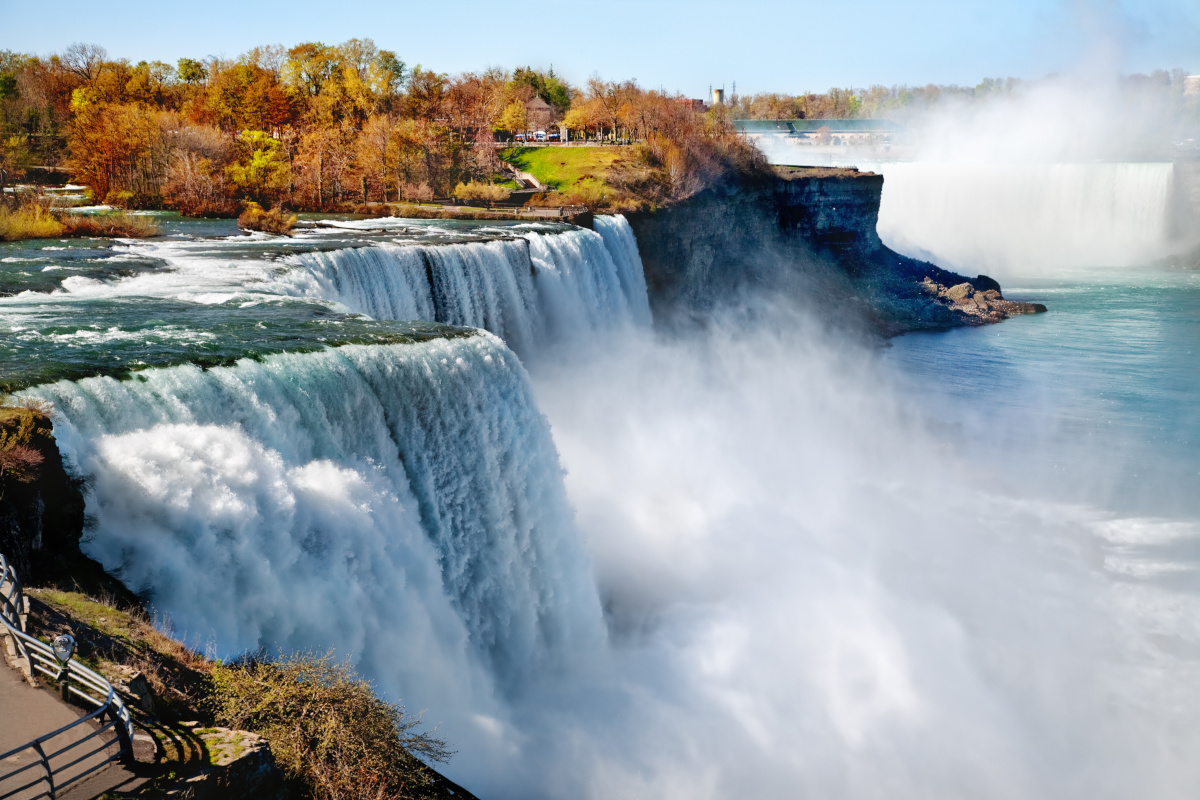
Health & Safety for a Trip to Canada
Stay Safe and Healthy on Your Canada Trip With Redpoint Protection
Whether you plan to explore its diverse cities or vast wilderness, Canada has something for everyone, from skiing in Whistler to experiencing French-Canadian gastronomy in Quebec to exploring the cultural hub that is Toronto.
Although it's mainly a safe country, any trip abroad comes with some risk, so travel insurance is a must, especially if you're traveling as a family. It'll cover you if there are disruptions or delays to your trip, and if you need to access medical care for an accident or emergency while you're there. If you plan to do any skiing or backcountry exploration, the specialist gear and equipment you bring can also be covered by your travel insurance.

Whatever type of trip you have planned, you’ll want to familiarize yourself with Canada travel health and safety to explore the country with confidence. From local traffic laws to the vaccines you’ll need to have before you go, here’s what to keep in mind to travel safely and stay healthy while you’re in Canada.
Common diseases
Canada has no major endemic diseases, but travelers may encounter common illnesses, like colds, flu, or seasonal allergies.
Tick-borne illnesses, such as Lyme disease, can occur in forested areas and grassy regions, especially during the warmer months. Take necessary precautions, such as wearing long clothing and thoroughly checking for ticks and bug bites after spending time outdoors.
To prepare for your trip, consult official sources, like the World Health Organization (WHO), for travel advice, country-specific health news and updates, and additional information before your departure.
Vaccinations
The government of Canada doesn’t have any vaccination requirements at this time, but as when traveling to any destination, you should make sure you’re up-to-date on routine vaccinations, like MMR, tetanus, and seasonal flu.
The U.S. Centers for Disease Control and Prevention (CDC) also recommends COVID-19 and hepatitis A and B vaccines for travelers, depending on the activities and Canadian province you plan on visiting. If you require any vaccinations before you travel, visit your local travel health clinic.
Local medical treatment
Canada boasts an excellent healthcare system, and you shouldn’t have any issues locating high-quality medical facilities in case of illness or emergencies. However, non-residents must pay for medical services out of pocket, which is why it’s essential to have travel health insurance, as well as a waiver if you have any pre-existing medical conditions.
Emergency care is available nationwide and can be reached by dialing 911. Redpoint’s 24/7 assistance line can also provide help and guidance on medical care at +1-415-481-0610.
Pharmacies are widely accessible for over-the-counter and prescription medications; however, it’s always wise to carry your own travel-health kit from home if you know you may need prescription medications during your trip.
Water & food
Canada is a developed nation with high standards for food safety and water quality, so you can enjoy eating out in various settings without any major concerns. You can usually drink water from the tap without any problems too, though you should exercise caution when it comes to untreated water in wilderness areas.
Air quality
Air quality is generally excellent but may decline during wildfire season (summer and early fall) in some regions. Monitor local media to keep an eye on any developing fires, and check real-time air quality indexes if you have serious respiratory conditions.
Crime & personal safety
Beyond occasional low-level crime, such as pickpocketing, there aren’t any major safety risks when it comes to traveling to Canada.
The nation has a very low crime rate and is generally known to be welcoming and kind to visitors from the U.S. However, to stay safe, you should still exercise common sense and protect your belongings, especially on public transportation and in heavily touristed urban areas.
It’s also a good idea to check to see if the U.S. Department of State has any travel advisories for your destination before your departure, and register for its Smart Traveler Enrollment Program (STEP) in case of emergencies.
Natural disasters
Canada experiences occasional natural disasters, such as wildfires, flooding, and avalanches in mountainous regions. If you’re traveling to areas with heavy snowfall, make sure you carry the proper equipment and gear — including tire chains — and be prepared for extreme temperatures.
Familiarize yourself with local conditions and emergency resources before exploring wilderness areas so you can make informed decisions if need be, and always follow guidance and warnings provided by local authorities.
Local laws
Canada has 10 provinces, and local laws may vary by region, so it’s wise to read up on any relevant rules and regulations in your specific destination before you go. (For example: The legal drinking age is 18 in some provinces and 19 in others, and across the country, public consumption of alcohol is generally not permitted, although some exceptions exist.)
If you plan to drive while you’re in Canada, it’s essential to familiarize yourself with local traffic laws, carry a valid driver’s license, and make sure you’re adequately insured to drive in a foreign country.
FAQs about Canada Travel Health & Safety
Is Canada safe to visit?
What vaccinations are needed to travel to Canada?
What is required for a U.S. citizen to visit Canada?
Are there any COVID-19 restrictions for travelers to Canada?
What happens if a tourist gets sick in Canada?
In case of emergencies in Canada, dial 911 for emergency services. Redpoint can also be reached for round-the-clock assistance at +1-415-481-0610..
Are the hospitals good in Canada?
Is Canada safe for female travelers?
How do I contact the U.S. Embassy in Canada?
490 Sussex Drive, Ottawa, Ontario, K1N 1G8
Tel: +1-613-688-5335
Get Coverage From Redpoint
Whether you’re touring Canada’s cities or hitting its slopes, Redpoint’s comprehensive, easy-to-understand policies can cover adventures of all kinds. Explore our three international travel insurance plans — Ripcord, Calvary, and Harbor — and get a quote for your next trip today.

